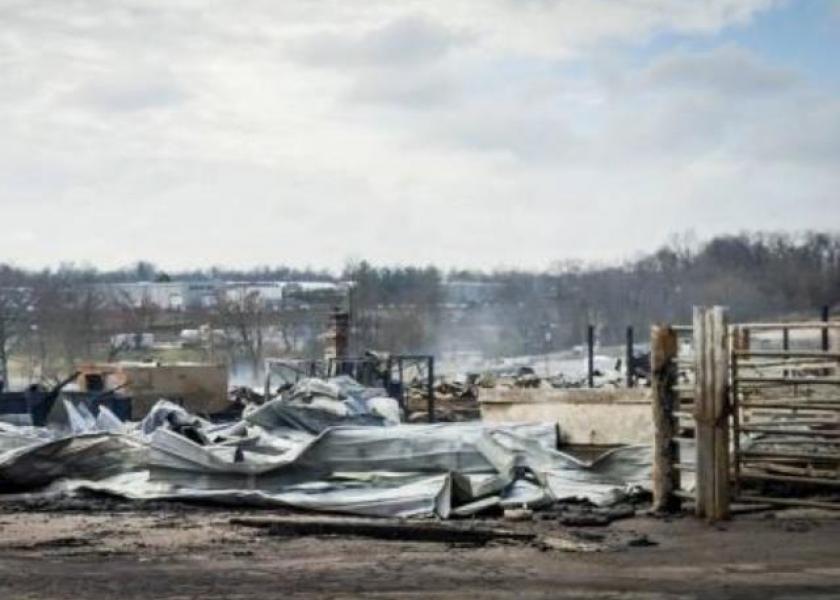Economist Discusses Economic Impact of Kentucky Stockyards Fire (VIDEO)

By Aimee Nielson, University of Kentucky
More than 100,000 cattle move through the Bluegrass Stockyards each year. The facility has been a mainstay in Central Kentucky since the mid-1930s. Recently a massive fire completely destroyed the location near downtown Lexington, and local producers will feel its absence.
“A lot of cattle producers and other livestock producers used this facility to sell their animals,” said Kenny Burdine, livestock marketing specialist for the University of Kentucky College of Agriculture, Food and Environment. “In the short term, there’s not going to be a change in the number of cattle that need to be marketed, so producers will have to use facilities in surrounding counties.”
Burdine said producers might see an increase in transportation costs as they move cattle farther. That extra time on the truck may cause increased shrinkage, which ultimately leads to a lighter animal for sale. Since producers sell by weight, they realize that shrink in their pocketbook as well.
Lexington Stockyard a Legacy for Many in Kentucky
AgDay, 2/3/16
Aside from the direct impact to producers, other businesses associated with Bluegrass Stockyards will feel the void as well.
“Many industries served this facility, from transportation companies to feed companies and veterinarians,” Burdine said. “A large number of Kentucky’s cattle leave the state after they’re sold. Many are transported out West to feed yards, so there’s a very large transportation network that exists to serve that need.”
With about a million head of beef cattle in production, Kentucky remains the inventory leader this side of the Mississippi River. With recent cattle prices and sales numbers, the beef industry has amounted to about $1 billion in direct, farm-level cash receipts for the state.
Touring the charred remains of the stockyards, Kentucky Agriculture Commissioner Ryan Quarles said he used to go to the stockyards with his father. He said the loss was personal to him and that he was looking forward to assisting in the recovery.
Kentucky Gov. Matt Bevin toured the area with Quarles and Lexington Mayor Jim Gray. He said he was inspired by the attitudes and efforts of everyone involved.
“Out of this tragedy, there are stories of people working together…. There is a chance for there to be a rebirth out of something as tragic as this,” he said. “This is an integral part of this community; it has been for many years and many generations, and that’s not going to change.”
Jim Akers, chief operations officer for the Bluegrass Livestock Marketing Company, which owns the stockyard, said the outreach from customers, government and others in the agricultural industry has been overwhelming.
“It’s sad to lose history,” he said. “We have mutigenerational employees and customers. Facilities like this one just don’t exist anymore, and it was very special. We deal with the emotion, but we also recognize the work we do is vital to feeding our nation and the world…. We had to get up this morning, put our boots on and go to work, and that’s exactly what we did.”
Akers said customers should not see an interruption in service, as the company is moving operations to their many other facilities around the state.







